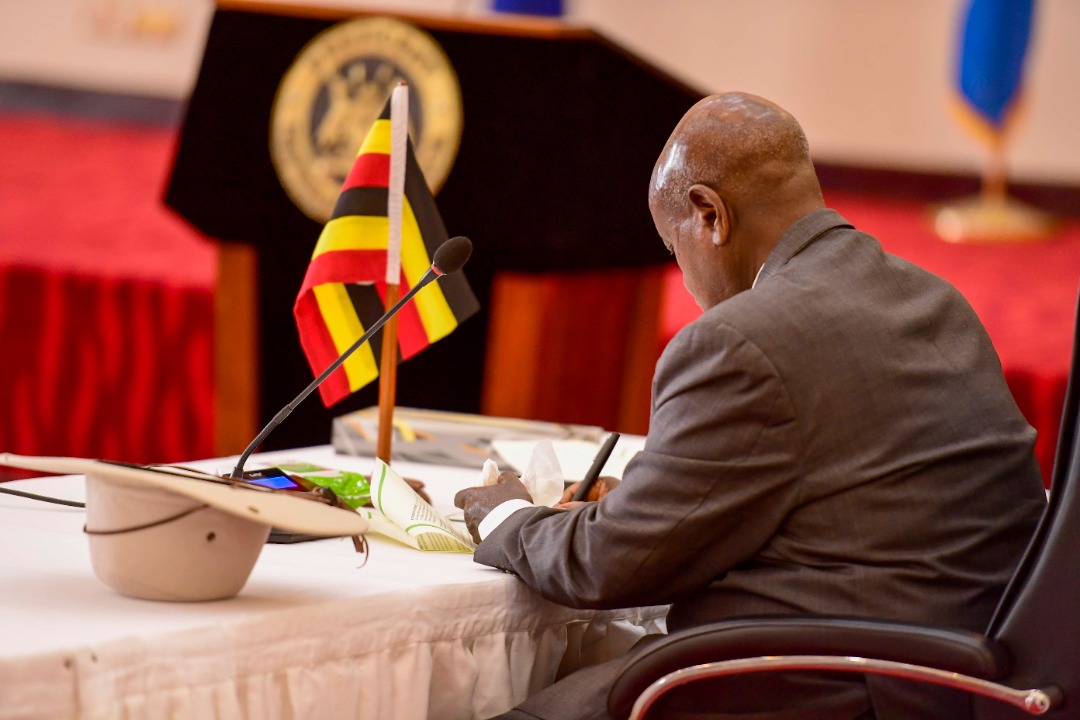President Yoweri Museveni will on Tuesday address the country on the state of the Ebola Virus Disease (EVD) in the country.
A tweet by State House on Monday indicated that the address will happen at 8pm and relayed live all Radio and TV stations across the country.
His address comes only a day after confirming the first Ebola death in Jinja, Eastern Uganda, becoming the ninth district in Uganda to register the disease.
This was after samples from Dan Waiswa who died on Friday at Buwenge Health Center IV returned positive results. The districts with confirmed cases include; Bunyangabu (1 case), Jinja (1), Kagadi (1), Kampala (17), Kassanda (46), Kyegegwa (4), Masaka (1), Mubende (63) and Wakiso (3).
The address will be the fourth time Mr Museveni address the country on Ebola since its outbreak on September 20.
First on September 28 when he appealed to people to observe precautionary measures including washing hands with soap and water or use alcohol-based sanitizer and also avoiding contact with body fluids from any person.
At the time, 5 people had succumbed to the disease and 19 others had been confirmed to have the virus.
His second address was on Wednesday October 3, when he warned witch doctors, traditional healers, and herbalists against handling suspected cases of Ebola Virus Disease (EVD).
This was after the death of a one Yezu Twagiira Ndahiiro, an Ebola contact who escaped from Mubende and went to Luwero for treatment before he was rushed to Kiruddu where he died later.
Three days later, on October 15, the President again addressed the nation where he imposed a travel lockdown of 21 days on Mubende District where first case was confirmed, and its neighboring district, Kassanda.
This, according to the President, was inspired by people in the district-hit districts who willingly refused to keep within the boundaries of their districts.
Last, the Ministry of Education directed all Pre-primary, Primary and Secondary schools two weeks earlier than the scheduled date in a bid to curb the spread of the virus. Schools will now close on November 25 as opposed to earlier scheduled December 9.
Ebola situation upgraded to very high
Meanwhile, the World Health Organization has upgraded Uganda’s Ebola risk situation from ‘high’ to ‘very high’, and from ‘low’ to ‘high’ at the regional level since the virus was first detected in late September. However, WHO determined the risk remained low at the global level.
The latest WHO figures put the number of confirmed and suspected cases of Ebola in Uganda at 158, including 54 confirmed deaths and 21 probable deaths.
This brings the case fatality rate up to nearly 40%. WHO reports three vaccine candidates have been identified that could be tested in randomized clinical trials in Uganda. No starting date has been set.
Janet Diaz, head of the WHO’s program for clinical management in health emergencies, recently returned from a week-long visit to Uganda to take stock of the current situation and assess the needs of health facilities in affected areas. Even without a proven Ebola vaccine, she said lives can be saved by providing optimal supportive care.
“This includes early diagnosis and monitoring of patients so health workers can give immediate care for dehydration with IV fluids,” she said.
“They can correct glucose levels or electrolyte levels if they are low. They can ensure that patients get good nutrition, and that if they develop any co-infections, such as malaria that is treated appropriately.”
Diaz cited community engagement as probably the most important. To stop the Ebola outbreak, she noted the community must believe, engage and be part of that response. She said concerted efforts are being made to get the community to seek care if they have symptoms and to follow through on contact tracing.
“And then if any symptom occurs that they report it right away so they can get tested and treated,” said Diaz.
“I think if we can message around the treatment and safe care and good care in Ebola care facilities, then that we hope and that these facilities are inviting to patients and communities, that we would avoid any stigma or fear if someone gets diagnosed.”
Diaz said the WHO is helping Uganda’s ministry of Health to establish more bed capacity and is involved in building at least three new patient facilities. She says more than 80 WHO experts on the ground are mentoring clinical staff on best care.
In addition, she says large-scale training is taking place on infection prevention and control.

